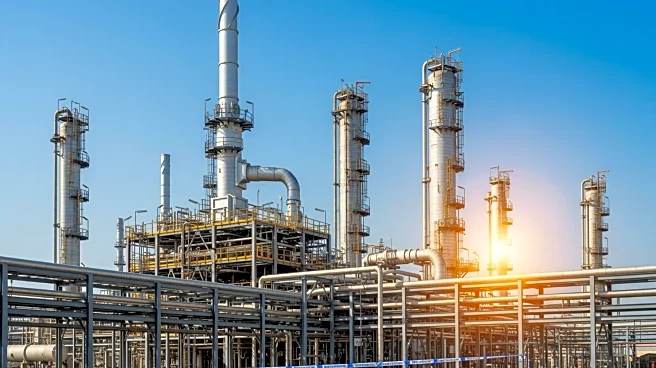What's Happening?
Iraq is on the verge of achieving self-sufficiency in gasoline production with the completion of the Fluid Catalytic Cracking (FCC) project at the Basra refinery. Announced by Iraq’s Minister of Oil, Hayan Abdul Ghani, the $3.75 billion project is financed
by a low-interest loan from Japan, with a 30-year repayment period starting after a ten-year grace period. The FCC project is a strategic initiative aimed at converting heavy fuel oil into high-value products, including 4,200 cubic meters of high-octane gasoline, over 2,000 cubic meters of gas oil, and more than 750 tons of liquefied gas daily. This development is expected to significantly reduce Iraq's gasoline import costs, which were previously $5 billion annually, and position the country as a net exporter of refined petroleum products.
Why It's Important?
The completion of the Basra refinery upgrade is a significant milestone for Iraq's energy sector, potentially transforming the country into a major player in the global oil market. By achieving gasoline self-sufficiency, Iraq can reduce its dependency on imports, thereby improving its trade balance and economic stability. The project also aligns with Prime Minister Mohammed Shia Al-Sudani’s government priorities, showcasing Iraq's commitment to enhancing its refining capabilities. This development could attract further foreign investment and strengthen Iraq's geopolitical standing in the region as an energy exporter.
What's Next?
With the FCC project nearing completion, Iraq is set to inaugurate the facility soon, marking a new era in its refining industry. The government is likely to focus on optimizing the refinery's operations and exploring new markets for its refined products. Additionally, the successful implementation of this project could lead to further investments in Iraq's energy infrastructure, potentially boosting economic growth and job creation in the sector.

















